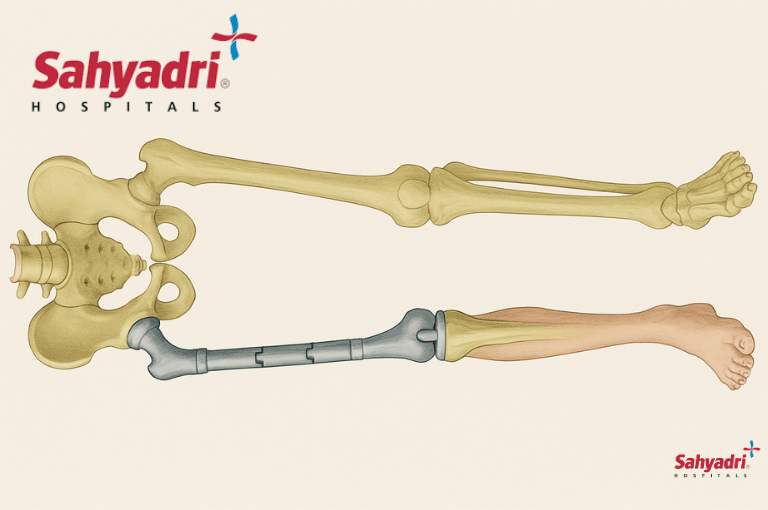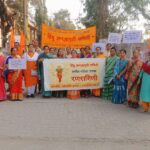A 70-year-old male patient from Tanzania has successfully regained his ability to walk after undergoing a high-risk Total Femur Replacement surgery at Sahyadri Hospital, Deccan Gymkhana. The patient arrived with severe pain in his left hip and complete loss of mobility. His case was medically complex due to a history of ischemic heart disease (a condition where the heart doesn’t get enough blood) and a previous coronary artery bypass graft (CABG) surgery.
He had also undergone a custom knee replacement surgery a few years ago using a mega prosthesis — a large, specially designed implant that replaced part of his femur (thigh bone). Over time, this implant caused serious damage to the surrounding bone. To make matters worse, the patient had developed a femoral neck fracture (a break near the top of the thigh bone, close to the hip) that was left untreated for several months.
“When he came to us on January 31, 2025, for his first consultation, the old implant had already failed and caused significant bone loss,” said Dr. Abhijit Agashe, Consultant Orthopedic and Joint Replacement Surgeon at Sahyadri Hospitals. “The previous implant was a tumour prosthesis with a cemented stem—typically used in cases where large segments of bone are removed due to cancer and replaced with metal components fixed using surgical bone cement. Over time, however, this prosthesis had loosened and compromised the surrounding bone.
We performed a CT scan to evaluate the possibility of a hip replacement while retaining the existing knee implant. However, the scan revealed insufficient healthy bone structure, leaving us with no option but to replace the entire femur. He was subsequently admitted on February 11, 2025, allowing us the necessary time to plan and prepare for this complex surgery.”
With over 60% of the femur compromised and the existing implant no longer functional, the surgical team opted for a full Total Femur Replacement—a complex procedure rarely performed, especially in patients with serious heart conditions.
“A Total Femur Replacement is a rare and complex surgery, especially in elderly patients. It involves removing the entire thigh bone—from the hip to the knee—and replacing it with a metal implant that includes both an artificial hip and a hinge knee joint,” explained Dr. Abhijit Agashe. “The procedure, done under general anesthesia, takes about seven hours. We make an incision along the thigh, remove the damaged bone, insert the prosthesis, and reattach muscles and tendons to restore stability and movement.”
The biggest challenge was the patient’s heart function, which was severely reduced—his ejection fraction (a measure of how well the heart pumps blood) was just 25–30%, much lower than normal. “Giving anesthesia and performing major surgery in such a high-risk cardiac patient is extremely difficult,” Dr. Agashe added. “But thanks to accurate planning, advanced imaging technology, and modern anesthesia methods, we were able to safely carry out the procedure.”
After surgery, the patient was closely monitored in the intensive care unit (ICU) for the first 2–3 days to ensure his heart remained stable. Once his condition improved, a gradual rehabilitation process began. “We started by helping him sit, then stand, and finally take steps with support,” said Dr. Agashe. “Today, he’s walking with a cane—something that wasn’t possible just a few weeks ago.”
The patient was discharged on February 25, 2025, and continues to recover well. The medical team is closely following his progress. This surgery is among the first Total Femur Replacements performed in Pune on a patient of this age with such serious heart issues and bone loss. It highlights Sahyadri Hospitals’ ability to manage difficult, high-risk surgeries using a team-based, patient-focused approach supported by modern technology and expert care.









